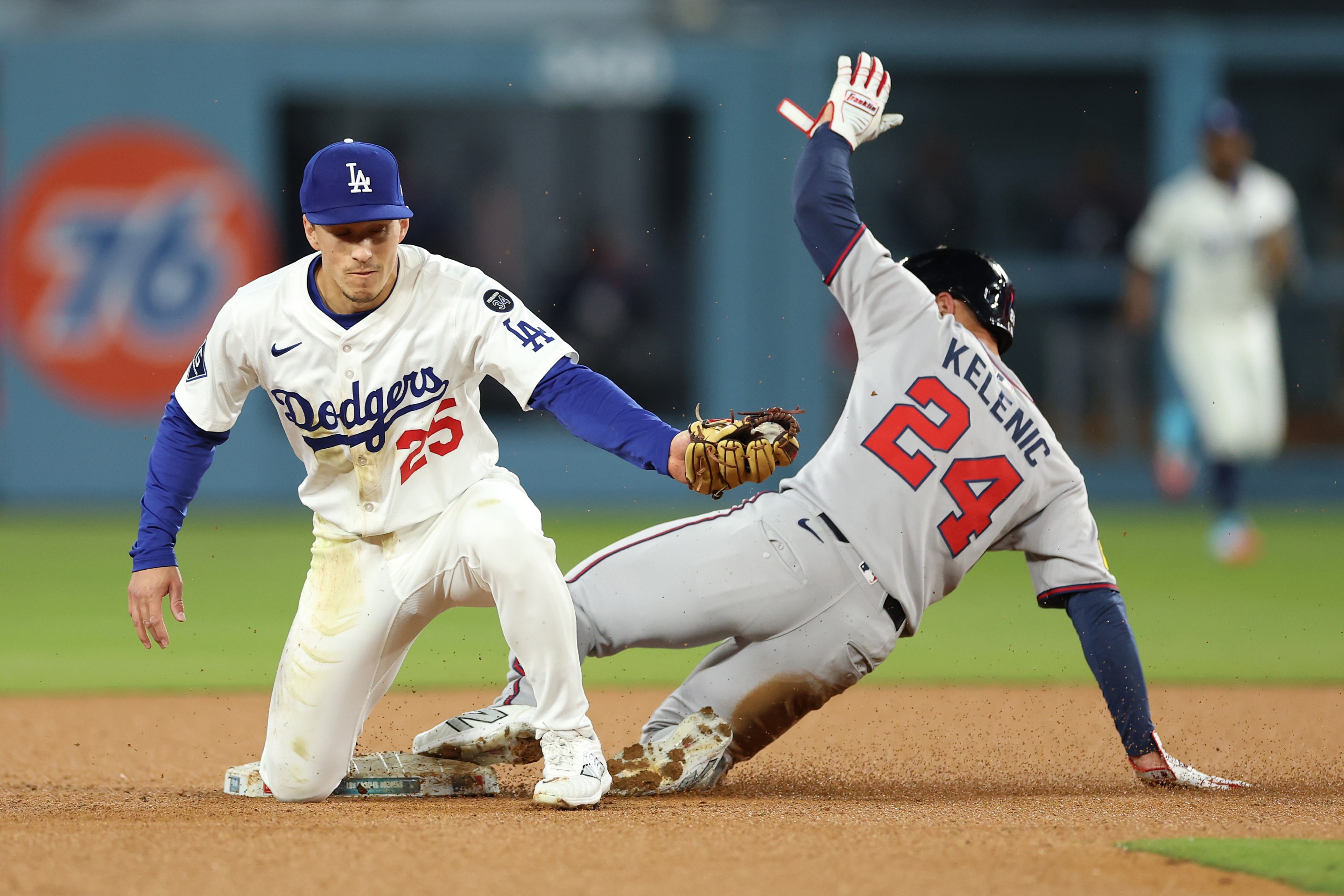The assumption, looking at the corpse of the Atlanta Braves in September, was that it could not possibly happen again. Bad luck doesn't come around that often, and certainly never strikes twice. Projected standings may be able to hold firm, but early April is the season for baseball mortals to conduct their favorite activity: small sample-size thinking. Fifteen homers in three games means that the New York Yankees' torpedo bats need to be torpedoed into the moon; Mike Trout is starting to stink; 15 strikeouts in 19 at-bats is, well, admittedly pretty awful, there's no getting around that. And, now, looking at a .000 win percentage over six games, simple math says that the Braves may not win another game this season.
It isn't just the record. On Monday, MLB suspended Jurickson Profar for 80 games, after he tested positive for human chorionic gonadotropin. Sealing the suspension, Profar didn't even file the customary appeal out of obligation. As pitchers' sudden resurgences could once be explained by "He got into the special jam," a PED suspension provides a neat and tidy explanation as to how Profar had such an out-of-character season as a hitter last year, though it may lessen the charm of the story. It also explains the relatively slow offseason Profar had as a free agent, before the Braves handed him a three-year, $42 million contract in January—the only multi-year contract they handed out over the offseason. (According to David O'Brien at The Athletic, the Braves ascribed his performance to mechanical adjustments "made with his lower body in his batting stance, after working out with Fernando Tatis Jr. and his dad the previous winter.")
That news was immediately followed by an announcement that former White Sox success story Reynaldo López—one of the original bullpen-to-rotation success stories, and a pivotal part of the Braves' limited success last year—would be placed on the injured list with shoulder inflammation. A day following that came news that López would undergo arthroscopic shoulder surgery. With López injured, Max Fried lost to New York, and Spencer Strider yet to return from injury, the Braves' rotation will temporarily be headed by Chris Sale (point: reigning Cy Young winner; counterpoint: 36 years old), and rounded out by Grant Holmes and 22-year-old AJ Smith-Shawver.
Fortunately for the Braves, it will get better sooner rather than later, purely on name recognition. Ronald Acuna Jr., Sean Murphy, and Spencer Strider are all expected to be back from injury come May; and Profar's unpaid suspension opens up some luxury tax wiggle room for the deadline. It's difficult to keep a calm mind when the Miami Marlins are second in the division with a 4-2 record, but all the Braves have to do until then is to hold out and, hopefully, enjoy some nice and easy matchups to stay afloat until—oh, no, it's the Dodgers. It is always the Los Angeles Dodgers.
Tuesday night's game, the second in the series, was a matchup between National League powerhouses with opposite approaches to roster construction. The Braves came into the game with an 0-5 record; the Dodgers came into the game with a 6-0 record. (This is the Dodgers corollary: If the Braves may not win another game, the Dodgers may not lose another one.) Both teams showed, in their own particular ways, their best: Sale started for the Braves, and Dustin May made his first start for the Dodgers in nearly two years. In the second inning, an emaciated Mookie Betts and the continued shortstop experiment yanked a throw to first that allowed Marcell Ozuna to score, before Jarred Kelenic, now helping fill out the empty outfield spots of both Profar and Acuña, grounded out to end the inning.
That was the only run scored in the game until the sixth inning, when the top of the Dodgers lineup came up to bat for the third time against Sale. The most predictable outcome then occurred: Shohei Ohtani singled, and then Betts compensated for his earlier error, and then some, by pulling a two-run homer to left field. The Dodgers proceeded to close out the game with a now nauseatingly familiar sequence of relievers like Alex Vesia, Blake Treinen, and recent free-agent signing Tanner Scott.
For all the irritation spurred by the Dodgers' bajillion-dollar payroll and bajillion-man roster, the Braves serve as the perfect example of what happens when you don't invest, at least a little, into making an already great team even better. You can have all the guys in the world, but make Profar the only free-agent target of the offseason, and the bullpen suffers as Jeff Hoffman goes to the Blue Jays instead; don't re-sign Fried, and the rotation suffers as other starters inevitably get injured over the course of a long season. If only the Braves weren't physically barred from signing more than one free agent to a multi-year contract. As it is, it remains such a shame that when Alex Anthopoulos tries, a higher power personally reaches down from the skies to smack the pen out of his hands.
Early April is for overreactions that will inevitably peter out once things settle down into May. But no matter if or how much the Braves are able to right the ship before September, they are playing a game that is much harder than it needed to be. The bright side to having to face the Dodgers for a third time is that tonight will be an opportunity for both teams to shift their trajectories. Dodgers corollary aside, baseball means that the Braves are due a 7-0 shellacking against Blake Snell, and then anything can happen from there. And then we have the San Francisco Giants, currently third in the National League West with a 4-1 record to start the season, who will be hoping for any change in the status quo.






